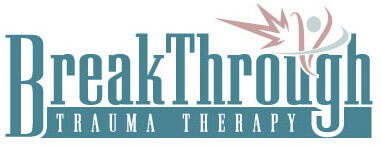Have you watched a movie of a character in a toxic relationship, and freeing themselves felt impossible? The more the abuser became mean, the deeper the receiver’s inclination grew to want to please them. They made excuses for the abuser’s shortfalls and dismissed their cruel intent. The person at the receiving end of the abuse dared to think they provoked the abuser’s wrath because of their shortcomings. In psychology, this is called a trauma bond.
What is the Meaning of a Traumatic Bond?
A trauma bond is a deeply emotional attachment that develops  from an emotional and physical (or both) relationship with an abuser. A trauma bond is a psychological response to abuse. In other words, it is an unhealthy connection developing from a traumatic relationship.
from an emotional and physical (or both) relationship with an abuser. A trauma bond is a psychological response to abuse. In other words, it is an unhealthy connection developing from a traumatic relationship.
The person receiving abuse sympathizes with the abuser and, in so doing, enables the abuser. The resulting situation becomes a vicious abuse cycle. Remorse usually accompanies every abuse episode.
Types of Trauma Bonds
Most movies show a trauma bond between a captive and their captor. A girl gets kidnapped, locked, and tortured, leaving behind shattered loved ones. However, when her rescues finally reach her. She goes back to her kidnapper without any compulsion. The attachment between the detainer and their captive is known as Stockholm syndrome.
In Stockholm syndrome, the captive begins to rationalize the behavior of the captor. Furthermore, the detainee starts developing positive feelings for their abuser and understands where they are coming from regarding the abuse. They begin to consider the rescuer the enemy and work with the captor against anyone trying to free them.
Other types of trauma bonds include:
Abandonment
The fear of abandonment or neglect trauma is extreme apprehension about being neglected in a relationship. Trauma begins when a child’s emotional and physical needs are unmet by their caregiver. It manifests as fear, insecurity, loneliness, and lack of safety in relationships. The trauma can persist to adulthood. It is also possible to develop abandonment issues later on in life.
Abandonment issues in adulthood have similar characteristics as neglect trauma in children. Symptoms include:
- Pushing people away – the fear of abandonment keeps the person from becoming too close to others.
- Becoming extremely guarded in relationships – the person may become possessive or controlling to compensate for their neglect trauma.
- Secretiveness – a tendency to keep things to themselves
- Neediness or codependency – a person becomes too attached in their relationships, always needing to be rescued or to provide the rescue, leading to identity loss and creating an enabling environment for abuse.
- Emotional volatility and aggressiveness in relations
Fawning
Fawning is a coping mechanism where a person develops people-pleasing tendencies to avoid or deescalate conflict or create a sense of safety from abuse. The reaction seeks to appease the abuser. The person receiving the abuse tries to please their abuser even though they got hurt from the incident.
The receiver:
- They will agree with what the abuser says
- Comply to earn the approval of the abuser
- Disregard their physical or emotional pain to tend to the abuser
- Set ignore or compress their personal feelings
Emotional Neglect
Emotional neglect or abuse trauma occurs when a person’s  feelings are constantly overlooked, dismissed, invalidated, or unappreciated by a caregiver or significant other. Over time, the person begins to think their feelings are insignificant. Therefore, they stop seeking support.
feelings are constantly overlooked, dismissed, invalidated, or unappreciated by a caregiver or significant other. Over time, the person begins to think their feelings are insignificant. Therefore, they stop seeking support.
Children experiencing emotional neglect become depressed, anxious, or aggressive. They may also develop low self-esteem, apathy, withdrawal from social circles, intimacy, or close relationships. Emotional neglect in adulthood can lead to
- Post-traumatic stress disorder – the traumatic experience haunts every other subsequent relationship.
- Emotional unavailability – the burden of feelings becomes too hard to bare, resulting in emotional suppression and withdrawal
- Intimacy avoidance – the vulnerability that comes with loving someone blocks the person’s willingness to let loose.
- Insecurities about self – the person may feel like they are deeply flawed. The low-self worth gets accompanied by guilt and shame.
- Difficulty trusting or relying on others because of the fear of emotional neglect
- Emotional apathy – from the constant disregard for feelings
- Anger and aggression – from emotional suppression manifest as irritation, annoyance, and explosive rage occasionally.
- Increased vulnerability to developing an eating disorder – emotional dysfunction triggers emotional eating because you cannot deal with, resolve, or manage your emotions.
Control
Control is both a consequence and a cause of the trauma bond because of the power imbalance prevailing in such unhealthy attachments. As a causative agent, a controlling abuser can disempower their target, taking away their autonomy. The extent of the abuser’s domination is so intricate that the target becomes lost when the attachment gets severed.
The subjugated individual loses their identity and purpose once free from control. All they know to do is follow the command of their abuser and live to appease their master. They become anxious about their newfound freedom, and their self-empowerment feels strange because their abuser is the only familiar territory they know. They will always find their way there at whatever cost.
The abuser of someone going through control trauma does not have to be the same person. The person receiving the abuse will hop from one control freak to the next in search of that familiarity unknowingly. The evidence of the trauma is in their relationship pattern.
How to Overcome The Trauma Bond
The trauma bond is a psychological maladaptive coping mechanism stemming from past or present relationship traumas. The condition can cause further damage to your mental and physical health without any intervention. One way to overcome traumatic relational experiences with your loved ones is through counseling.
Counseling psychologists have the resources, experience, and expertise to guide you through your trauma, identify your destructive coping patterns, and learn practical ways to get free through skills, techniques, and increased knowledge of the mental issue. Most importantly, a therapist provides support and accountability to empower you to get through the maze of the trauma bond. You can be part of healthy relationships or develop new ones without the fear of messing things up with therapy.
Click here for more on Trauma Therapy.
Reference
- https://www.liebertpub.com/
doi/10.1089/vio.2017.0076 - https://www.tandfonline.com/
doi/full/10.1080/21642850. 2017.1297238 - https://pubmed.ncbi.nlm.nih.
gov/8193053/ - https://www.sciencedirect.com/
topics/psychology/emotional- neglect

